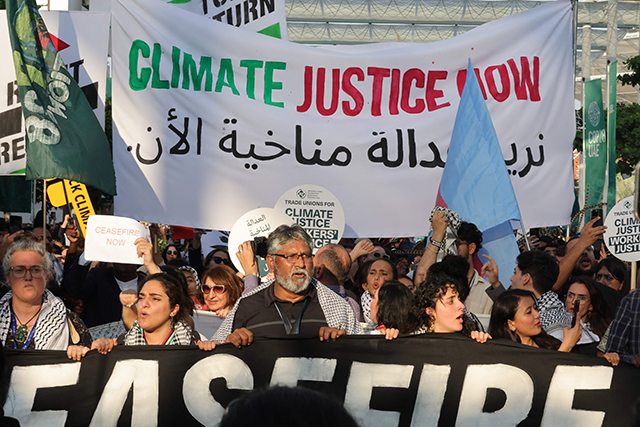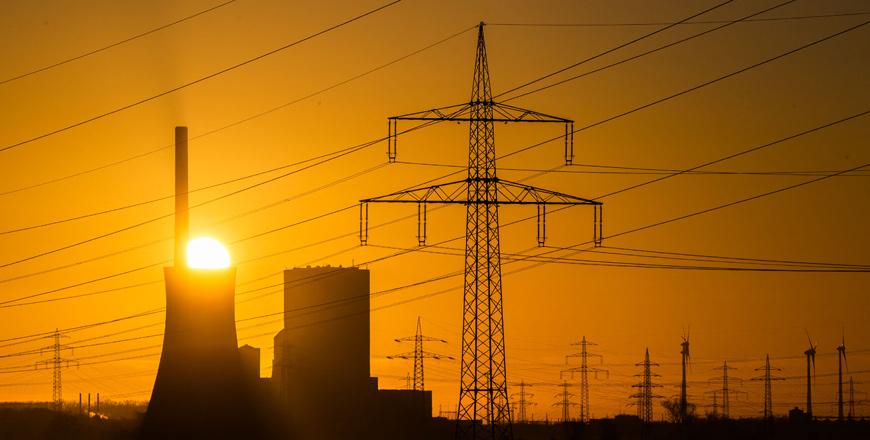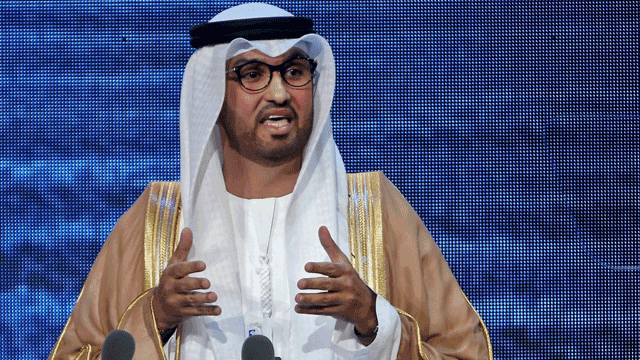You are here
G20 fails to agree fossil fuel phase-out despite warnings
By AFP - Sep 09,2023 - Last updated at Mar 26,2024
NEW DELHI — G20 leaders meeting Saturday failed to agree to a phase-out of fossil fuels, despite a UN report a day earlier deeming the drawdown "indispensable" to achieving net-zero emissions.
But, for the first time, they backed a target of tripling global renewable energy capacity, a goal championed by the chief of the COP28 climate talks that begin in November.
The much-debated G20 statement also acknowledges that limiting warming to 1.5°C will require slashing greenhouse gases 43 per cent by 2030 from 2019 levels.
And it includes a reference to the need for emissions to peak before 2025.
Still, the decision by nations that account for 80 per cent of global emissions to eschew stronger language on fossil fuels will raise questions about global commitments before the key round of climate discussions in the oil-rich United Arab Emirates.
The Group of 20 is deeply divided by geopolitical faultlines including Russia's Ukraine invasion and relations with China.
But it is similarly riven by disagreement on the future of oil, with major producers like Saudi Arabia among its membership and reluctant to agree to the end of all fossil fuels.
The group’s leaders met in a year expected to be the hottest in human history, which has already offered abundant evidence of disasters worsened by climate change.
And for some their statement offered an alarming lack of ambition.
“Increasing renewables must be backed by phasing down fossil fuels, both are indispensable for just transitions and a net-zero world,” said Madhura Joshi, senior associate at climate think tank E3G.
“We need stronger bolder action from leaders,” she added.
On Friday, the United Nations’ first progress report on meeting Paris Agreement climate goals made clear that net-zero carbon emissions by 2050 cannot be achieved without a phase-out.
“Scaling up renewable energy and phasing out all unabated fossil fuels are indispensable elements of just energy transitions to net zero emissions,” the first UN Global Stocktake said.
“Unabated” refers to fossil fuels that are burned without their emissions being captured or compensated.
‘Terrible signal’
Instead G20 leaders repeated language agreed last year on “accelerating efforts towards phasedown of unabated coal power, in line with national circumstances and recognising the need for support towards just transitions”.
And the per capita coal emissions of the group are continuing to rise, according to new research released before the meeting.
“This G20 was meant to show the way towards a future without fossil fuels,” said Friederike Roder, vice president for global advocacy at Global Citizen, an NGO.
The failure to agree targets on fossil fuels “is a terrible signal to the world, especially the poorest and most vulnerable countries and populations, that suffer most from climate change”, she said.
Still, the backing from the group, which includes leading economies including China, the United States and Brazil, for the target of tripling renewable energy capacity was welcomed by some.
Boosting renewables is seen as key to facilitating the move from more polluting sources of energy, and Aditya Lolla, Asia programme lead at energy think tank Ember, called the G20 move a “game-changer”.
“Such an about-turn from Saudi Arabia and Russia to lend support to renewables is very welcome,” she said.
“This is a game-changer for climate action.”
Host India has used its presidency to position itself as the voice of the “Global South” and press rich countries to meet their existing commitments and go further in helping vulnerable nations transition and adapt.
The leaders’ statement warns climate investment must “substantially scale up”, including through more ambitious financing by multilateral institutions.
It notes a UN assessment that developing countries need nearly $6 trillion before 2030 to meet their climate goals, and another $4 trillion a year for clean energy technology.
Wealthy nations have already failed to deliver on a pledge to provide $100 billion a year in climate financing to poorer nations by 2020.
And developing nations are increasingly pushing for the rich world to ensure climate action pledges are backed by sufficient funding.
Related Articles
DUBAI — The head of the OPEC oil cartel said on Saturday there was no "single solution" to the energy transition as pressure grows to agree
LONDON — The Group of Seven wealthy countries on Friday agreed to end state financing of coal-fired power plants by the end of this year, an
ABU DHABI — The fight against global warming should not be at the expense of economic growth, the UAE oil chief who will lead this year's UN

















